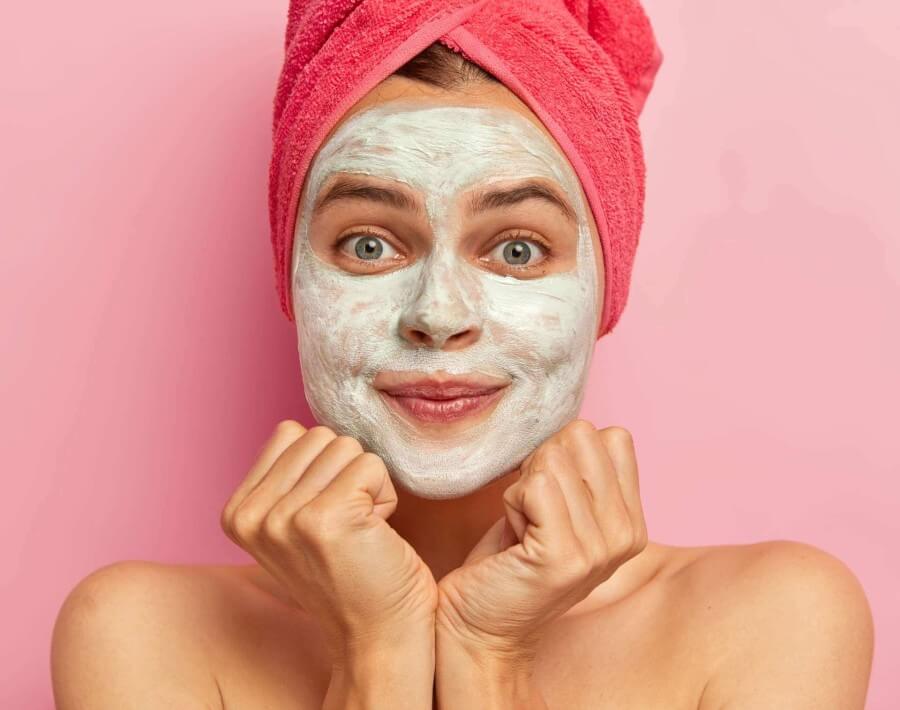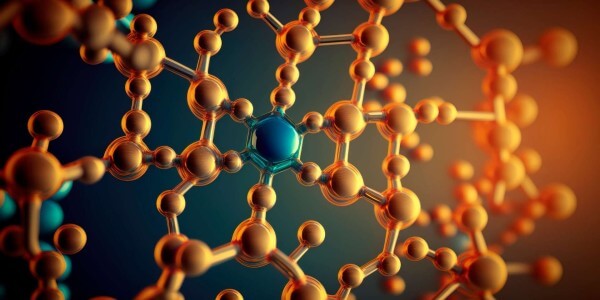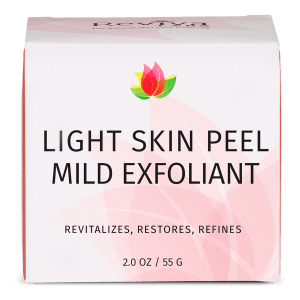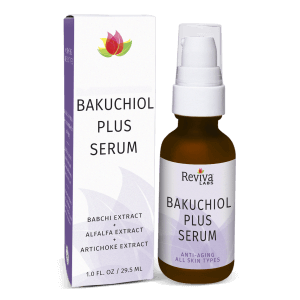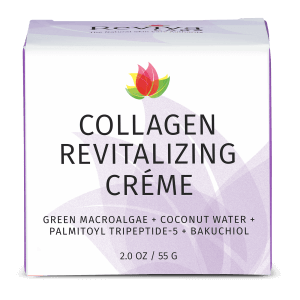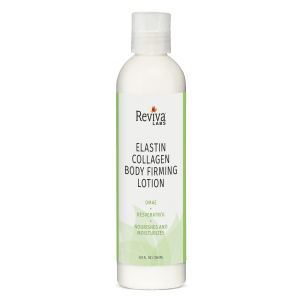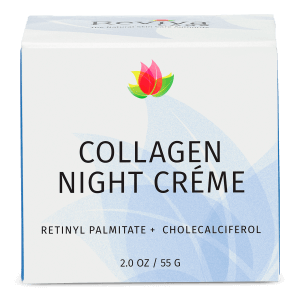Clean Beauty, Reviva Labs, Skin Care
How to Get Glowing Skin Naturally
Everyone wants to have glowing and healthy-looking skin. However, with the many skin care products available in the market, it can be difficult to determine which one is right for you. Fortunately, you don’t have to spend a lot of money on expensive products to achieve glowing skin. In fact, there are natural ways to get glowing skin that won’t break the bank. It’s all about adopting a few simple habits that can help improve the overall health of your skin.
Stay hydrated.
First and foremost, it’s essential to stay hydrated. Drinking enough water throughout the day can help keep your skin hydrated and healthy-looking. Drinking water helps to flush out toxins from the body, which can contribute to skin problems. According to a study published in the International Journal of Cosmetic Science, drinking water can significantly affect skin hydration and biomechanics [1]. It’s recommended individuals drink at least 8 glasses of water per day to keep your skin looking healthy and glowing.
Eat a healthy diet.
Secondly, a balanced and healthy diet can make a significant impact on your skin’s health. Foods rich in vitamins and minerals, such as fruits and vegetables, can help improve the overall quality of your skin. In a study published in the Journal of the American Academy of Dermatology, it was found that a diet high in fruits, vegetables, and healthy fats can help reduce the prevalence of acne [2]. Therefore, incorporating more fruits and vegetables into your diet can help you achieve glowing skin naturally.
In addition to fruits and vegetables, incorporating foods high in omega-3 fatty acids can also benefit your skin’s health. Omega-3s can help reduce inflammation in the body, which can lead to a reduction in acne and other skin conditions. Foods such as oily fish, nuts, and seeds are excellent sources of omega-3s and can be easily incorporated into your diet.
Conversely, it’s important to avoid or limit your intake of processed and sugary foods as they can contribute to inflammation in the body, leading to skin problems. These foods can also cause hormonal imbalances, which can lead to acne breakouts.
Incorporating dietary changes into your lifestyle can have a significant impact on your skin’s health, helping you achieve glowing skin naturally. However, it’s important to note that dietary changes alone may not be enough to treat severe skin conditions, so consulting with a dermatologist is always recommended.
Get enough sleep.
Another important factor that affects skin health is sleep. Poor sleep quality can lead to premature aging and dull-looking skin. Skincare and sleep are deeply interconnected. Inadequate sleep can have a significant impact on your skin’s health, leading to a dull complexion and early signs of aging. A study published in Clinical and Experimental Dermatology revealed that poor sleep quality can contribute to skin aging. A consistent sleep schedule can work wonders for your overall health, including the health of your skin.

Sleep is essential for maintaining healthy-looking skin. When we sleep, our body goes into repair mode, working to repair and rejuvenate damaged skin cells. Lack of sleep can lead to a decrease in blood flow to the skin surrounding your face, causing your skin to look dull and tired [5]. Additionally, sleep deprivation can cause an increase in the stress hormone cortisol, which can lead to inflammation and breakouts [6]. Getting enough sleep can also enhance the rejuvenating effects of your skincare products, allowing them to work more effectively in repairing and protecting your skin [7]. Therefore, it’s important to get at least 7-8 hours of sleep every night to help your skin look its best.
Exfoliate, exfoliate, exfoliate!
Exfoliating your skin regularly can also help improve its overall health. First, it helps to remove dead skin cells from the surface of your skin [8]. When dead skin cells accumulate on the surface of your skin, they can cause clogged pores, dullness, and uneven texture. Exfoliating helps to unclog pores and draw out impurities, which can lead to clearer, brighter, and smoother-looking skin [9].
Secondly, long-term exfoliating can increase collagen production, which is a key component of healthy-looking skin. Collagen promotes skin elasticity, making your skin look firmer and more vibrant [10]. Exfoliating also helps to enhance the effectiveness of your other skincare products. When you remove dead skin cells, it allows your skincare products to penetrate deeper into your skin, making them more effective in repairing and protecting your skin.
However, it’s important to note that over-exfoliating can be harmful to your skin, leading to irritation and even damage. It’s recommended to exfoliate no more than 2-3 times per week, depending on your skin type and the type of exfoliator you’re using.
Choose natural skincare products.
Using natural skincare products that are free from harmful chemicals is also essential for achieving glowing skin naturally. Natural skincare products can benefit your skin and the environment in several ways. Natural skincare products are often gentler on the skin than synthetic skincare products [12]. They are typically formulated with natural ingredients that are free from harsh chemicals and irritants that can cause dryness, flakiness, and other skin problems [11]. Products that contain natural ingredients such as aloe vera, coconut oil, and green tea are gentle on your skin and can help improve its overall health. Natural ingredients also tend to be more nutrient-dense, providing your skin with essential vitamins, antioxidants, and minerals that can help to promote a healthier, more youthful-looking complexion [12].
In addition to being better for your skin, natural skincare products are also better for the environment. Because they are made with natural ingredients, they are biodegradable and less harmful to the environment than synthetic skincare products, which often contain harmful chemicals and pollutants [11]. Choosing natural skincare products can help to reduce your carbon footprint and support sustainable, eco-friendly practices [13].
Protect your skin from the sun.
Lastly, it’s essential to protect your skin from the sun’s harmful UV rays. Sun exposure can cause damage to your skin, leading to premature aging and an increased risk of skin cancer. It’s essential to wear a broad-spectrum sunscreen with an SPF of at least 30 every day, even in the winter months [6]. Additionally, wear protective clothing, such as long-sleeved shirts and hats, when you’re outside. By avoiding accumulating sun damage, you’ll not only lower your risk of skin cancer, but your skin will be naturally more youthful looking. It’s much easier to prevent sun damage than it is to correct that damage later in life.
In conclusion, achieving glowing skin naturally is all about adopting a few simple habits that can help improve your skin’s overall health. Staying hydrated, eating a healthy diet, getting enough sleep, exfoliating regularly, using natural skincare products, and protecting your skin from the sun are all essential factors that can help you achieve healthy-looking skin without breaking the bank.
The key to glowing skin is simple skincare changes and better habits.
To achieve healthier, more radiant skin, it is important to adopt a few simple habits. Keep yourself hydrated by drinking plenty of water throughout the day. Consume a nutritious diet that contains an abundance of fruits and vegetables to provide your skin with the necessary vitamins and minerals to maintain good health. Get sufficient sleep and exfoliate your skin regularly. And finally, shop for natural skincare products that avoid harsh or harmful chemicals. But most of all, protect your skin from the sun.
Get onboard with these “good skincare” habits and you can enhance the overall health of your skin and attain a healthy-looking glowing complexion without having to spend a fortune on expensive treatments later in life.
Reference
- Palma, L., et al. “Dietary water affects human skin hydration and biomechanics.” International Journal of Cosmetic Science 30.2 (2008): 131-138.
- Pilkington, Suzanne M., and Lesley A. Watson. “Nutrition and skin health.” Journal of the American Academy of Dermatology 63.4 (2010): 615-624.
- Oyetakin‐White, P., et al. “Does poor sleep quality affect skin ageing?.” Clinical and Experimental Dermatology 39.1 (2014): 68-71.
- Narayanan, D. L., et al. “Sunscreen use in India.” Journal of the American Academy of Dermatology 52.2 (2005): 348-353.
- The Truth About Beauty Sleep
- Is Getting Your “Beauty Sleep” a Fairy Tale?
- Sleep Benefits the Health and Appearance of Your Skin
- Facial Exfoliation: What Is It, 10 Benefits, How to Exfoliate
- What Does It Mean to Exfoliate? Why You Should and …
- The Benefits of Exfoliation and Why You Should Be Doing It
- Top 6 Reasons to Use Natural Skin Care Products
- 7 Not So Surprising Benefits of Using Natural Skin Care …
- 5 Long Term Benefits of Using Natural Skin Care Products



